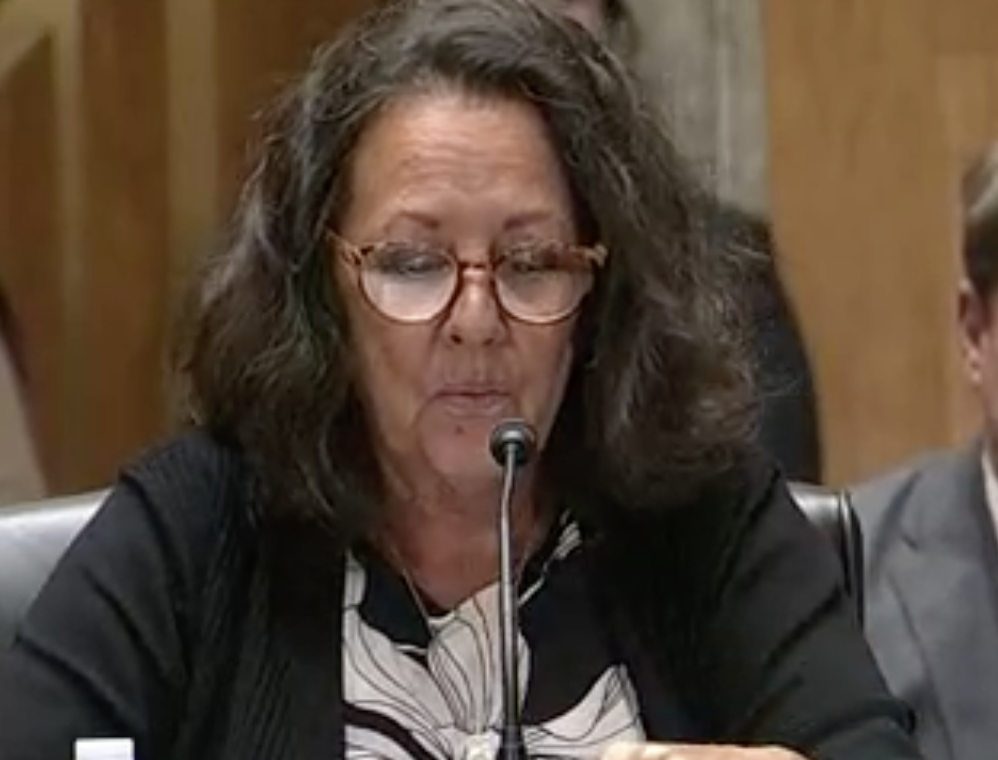
ATLANTA – A new report a U.S. Senate subcommittee released Tuesday found that the Justice Department (DOJ) failed to properly count the deaths of close to 1,000 people in state and local prisons and jails last year.
The oversight committee, chaired by Sen. Jon Ossoff, D-Ga., asked the Government Accountability Office (GAO) to conduct a separate analysis of jail and prison deaths.
The GAO found that the DOJ had neglected to properly count 990 deaths in 2021.
Data on those deaths was available in public records, yet the information was missing from the DOJ data, the GAO’s Gretta Goodwin told the committee.
Many of the death records that DOJ did collect were missing key elements such as demographic data or information about the manner of the person’s death. And in 2019, the DOJ stopped releasing the data publicly.
Congress has required DOJ to collect and analyze data on the deaths of people in custody since it enacted the Death in Custody Reporting Act (DCRA) in 2000.
“Despite a clear charge from Congress to determine who is dying in prisons and jails across the country, where they are dying, and why they are dying, the Department of Justice is failing to do so,” Ossoff said. “This failure undermines efforts to address the urgent humanitarian crisis ongoing behind bars across the country.”
Belinda Maley shared the story of the death of her son, Matthew Loflin, when he was detained in the Chatham County Detention Center in Savannah for a non-violent drug offense.
The committee listened to the painful recording of the last, brief phone call between the mother and her son.
“The pure horror of Matthew’s voice made me feel as though I was dying as well,” Maley said, noting she was only able to visit her son once. “Matthew died a slow, painful death over the course of weeks.”
Maley said the jail failed to give her son proper care for a heart condition. She attributed the lack of care to the private medical provider’s profit motive.
“Enforcement of the Death in Custody Reporting Act is so important and could be a tool to hold the for-profit, jail and prison medical providers accountable for unnecessary deaths like Matthew’s and others,” Maley told the committee.
Vanessa Fano also shared the story of the death of her brother, Jonathan Fano, when he was detained in the East Baton Rouge Parish Prison in Louisiana. Despite having diagnosed mental illnesses, Jonathan received no mental evaluation while imprisoned, she said.
He was even placed in isolation after slitting his wrists and eventually committed suicide by hanging himself.
Prior to this incident, Fano said, she and her family trusted government institutions.
“When we finally saw his lifeless body … it was only then we realized how wrong we were to place our trust in this system,” Fano said.
Both Ossoff and Sen. Ron Johnson, R-Wis., the committee’s ranking Republican, criticized the DOJ.
“Over the course of 22 years, I would have thought this information-gathering process would have been pretty well-honed,” Johnson said.
“There’s no doubt this has been poorly managed,” Ossoff said.
Maureen Henneberg, deputy assistant attorney general for operations and management at the DOJ, said her agency faced obstacles in collecting the data because of changes Congress made to the law requiring the reporting in 2013.
The DOJ recommends that Congress amend the legislation to fix those problems.
Henneberg said the move from one sub-agency to another within the DOJ in 2019 caused problems and that the agency has difficulty getting accurate data from states. DOJ is committed to improving the data collection, she said.
“Two Americans who were sitting in jail, pretrial detainees convicted of no crime, died in the custody of their own government, and there are thousands more,” Ossoff said as he concluded the hearing. “We have got to get this right.”
This story is available through a news partnership with Capitol Beat News Service, a project of the Georgia Press Educational Foundation.